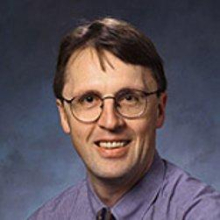MAE 298 SEMINAR: Origins of Strengthening in Complex Metal Alloys from Full-scale MD Simulations

Abstract: I will describe a series of massive (~108 atoms) molecular dynamics (MD) simulations reproducing full complexity of plastic strength response in concentrated single-phase, body-centered cubic (BCC) solid solutions and devised to explore the space of alloy compositions in order to maximize their mechanical strength. To efficiently navigate our search toward mechanically strong alloy compositions, we employ iterative optimization using Gaussian process regression. Many of the simulated RCCA compositions exhibit well pronounced cocktail strengthening. To further clarify the nature of alloy strengthening, we develop a method of “computational alchemy” in which interatomic interactions are modified to continuously and systematically vary two key parameters defining SSS – atomic size misfit and elastic stiffness misfit – over a maximally wide range of misfit values. At variance with views prevailing in the literature, our large-scale computational experiments show that stiffness misfit can contribute to SSS on par if not more than size misfit. Furthermore, depending on exactly how they are combined, the two misfits can result in synergistic (amplification) or antagonistic (compensation) effect on alloy strengthening. Our data suggests that, just like in unalloyed BCC metals, motion of screw dislocations plays a dominant role in alloy strengthening.
Bio: Vasily Bulatov is a senior scientist and distinguished member of the technical staff at Lawrence Livermore National Laboratory. Prior to joining LLN, he held research positions at MIT and Harvard University and a number of visiting professorships in France and the United Kingdom. Over the years, his work has focused on physics and mechanics of materials strength and degradation, microstructure and its effects on materials properties, efficient mathematical algorithms for computer simulations of complex processes, high-performance computing, uncertainty quantification, data mining and machine learning in engineering. He received his bachelor's degree in theoretical physics followed by a doctorate in physics of materials from the USSR Academy of Sciences and postdoctoral training at MIT. He was elected a fellow of the American Physical Society and fellow of the Institute of Physics, UK, and received a number of prestigious awards including the Edward Teller fellowship for his work on materials under extreme conditions.
Share
Upcoming Events
-
MSE 298 Seminar: Electrocatalysis as Enabling Technology for Decarbonization
-
CEE Ph.D. Defense Announcement: Modeling the Spatiotemporal Heterogeneities of Electric Vehicle Adoption in the United States through Sentiment-Mediated Mechanisms - A Large Language Model-Assisted Data-Fusion Framework
-
EECS Seminar: Random Thoughts After More Than 60 years in the Trenches
-
MAE 298 Seminar: Machine Learning Acceleration of Turbulent Combustion and Nonequilibrium Flow Predictions
-
CBE 298: Green Steel: Design, Supply Chain, H2 Storage and Dispatch Strategies
